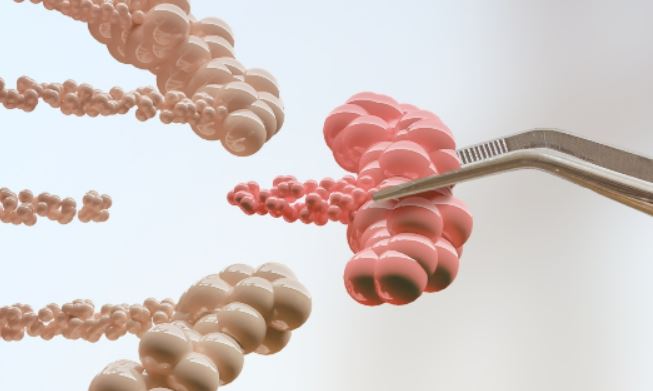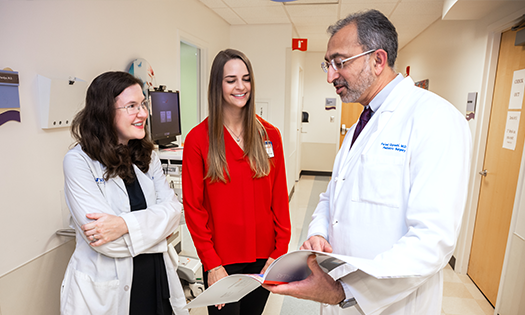A new, potentially game-changing gene therapy for children with Duchenne muscular dystrophy shows promise – but it’s not without some risks.
The U.S. Food and Drug Administration approved the therapy, Elevidys, in 2023. Children’s Medical Center Dallas, part of Children’s Health℠, is among the first children’s hospitals in the nation to offer the treatment. Because the therapy is so new, clinical literature does not yet have evidence-based protocols for managing treatment-related adverse events, such as vomiting, liver injury, myocarditis and immune-mediated myositis.
Amal Aqul, M.D., Director of Hepatology at Children’s Health and Associate Professor at UT Southwestern, is one of 12 interdisciplinary specialists invited to participate in a national panel to develop consensus considerations for the evaluation of these complications. Their recommendations were published in this paper in April 2024.
In this Q&A, Dr. Aqul addresses what the panel learned, how the risks of treatment can be mitigated and how adverse events can best be managed.
Why was a panel convened to provide recommendations on managing adverse events related to Elevidys?
There is little published research in this area, and complications can affect a range of organs, from the heart, gut to liver. Sarepta Therapeutics, the maker of Elevidys, convened a Delphi panel of 12 experts – neurologists, a cardiologist, a hepatologist, a pulmonologist, a gastroenterologist, and a pediatric advanced practice registered nurse – to discuss potential side effects.
The panel addressed specific clinical scenarios and made recommendations to help doctors care for their patients. This publication is helpful because it can guide the management of some of these patients.
What are the types of liver-related adverse events observed in patients receiving gene therapy?
Other gene therapies have led to liver injury and the panel developed recommendations to address that possibility. However, in the scenarios the panel examined, Elevidys caused only a temporary rise in liver enzymes. Patients responded to corticosteroid treatment and eventually got better.
What might lead to liver injury following gene therapy?
Elevidys is a gene therapy that targets the muscles – but the liver is the main filtering organ. Most theories are that gene therapy triggers an immune response against the virus carrying the vector, the new DNA. This can lead to release of some antibodies and cytokine inflammation, which also can attack the liver.
How can liver injury be managed in patients who receive this therapy?
The recommendation depends on the presentation. If a patient looks well, they might just require close monitoring. But if the patient seems likely to be sicker, they might need further evaluation to ensure that they don't have an underlying issue going on such as a viral infection. If so, they might require imaging and consultation with a hepatologist on escalation of the corticosteroid dose to reduce inflammation and suppress the immune system. Patients can be treated as an outpatient, although sometimes patients might need to be admitted to the hospital to receive IV steroids.
Is gene therapy recommended for patients with DMD?
Historically, Duchenne muscular dystrophy is a debilitating disease with few treatment options. Many kids are reliant on a wheelchair by age 12. Gene therapies represent a life-changing option for these patients. That’s why it’s important to tackle side effects and offer guidance so gene therapy can be provided for more patients.
What future developments are most exciting in the field of gene therapy, particularly concerning liver safety?
Gene therapy for Duchenne muscular dystrophy is a new area. Each hospital only manages a few DMD patients. There has been some discussion during national conferences about starting a national data registry to gather more information about complications and hepatoxicity to give us some guidance.
Children’s Health offers comprehensive treatment for pediatric liver disease
The Children’s Health Pediatric Liver Disease Center includes hepatologists who specialize in how gene therapy affects the liver. The experience of our team, combined with advanced tools, techniques, and cutting-edge research, makes our center one of the most specialized pediatric liver centers in the country.


